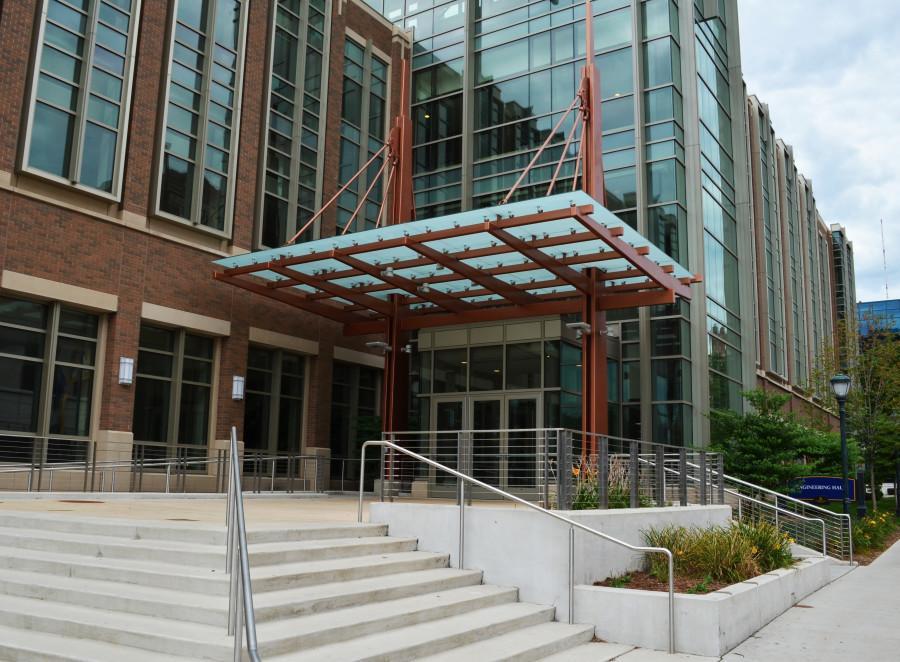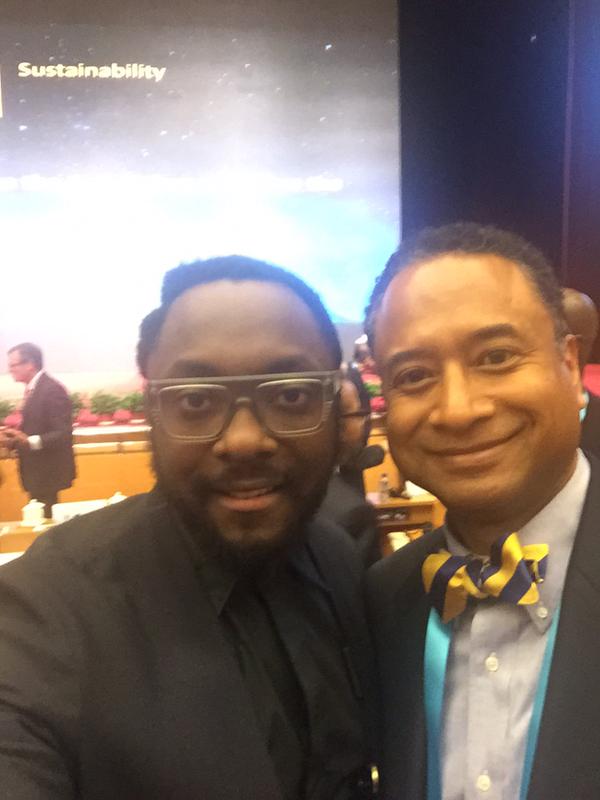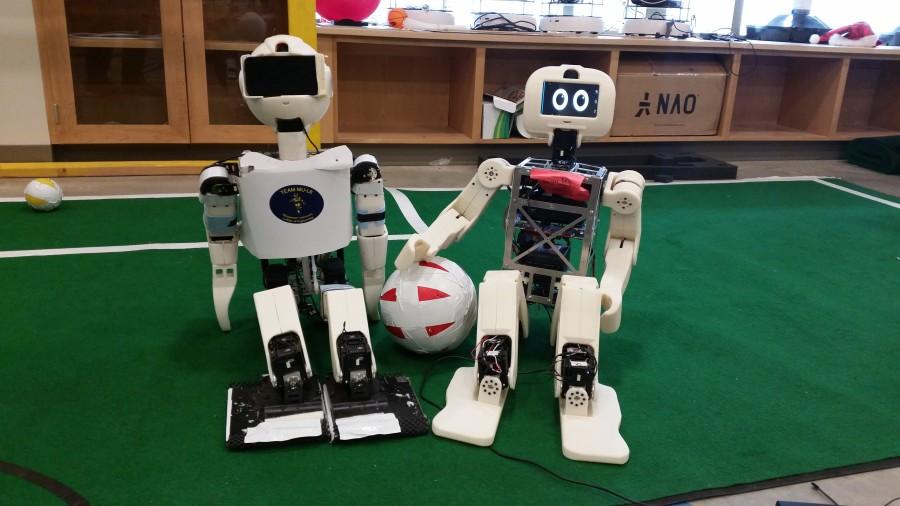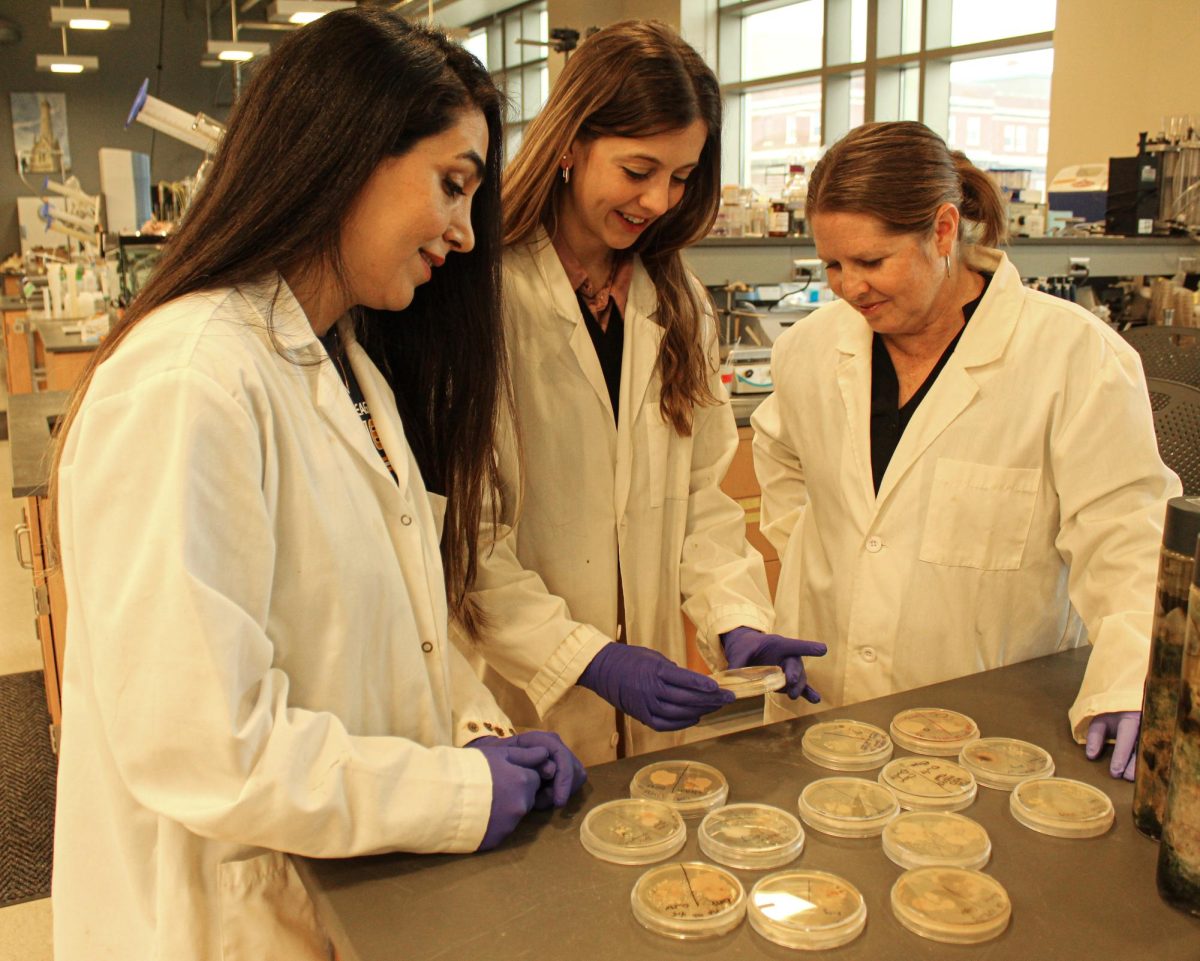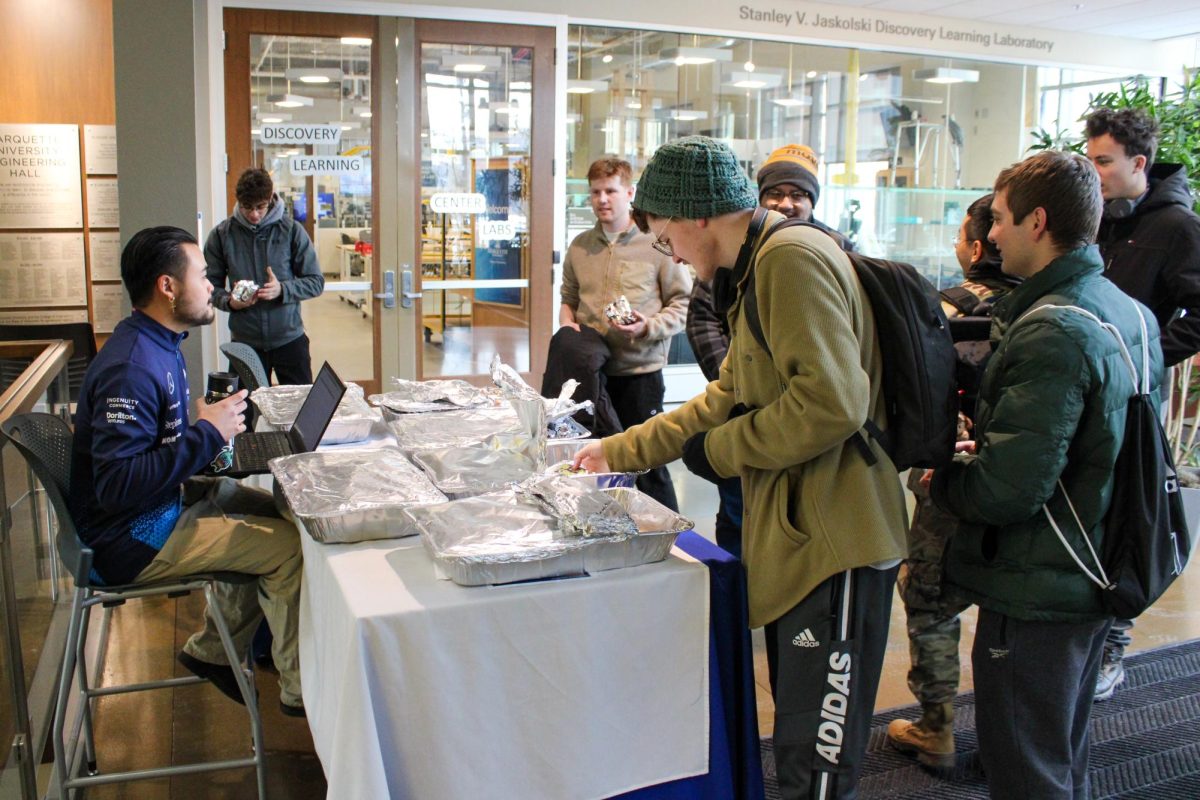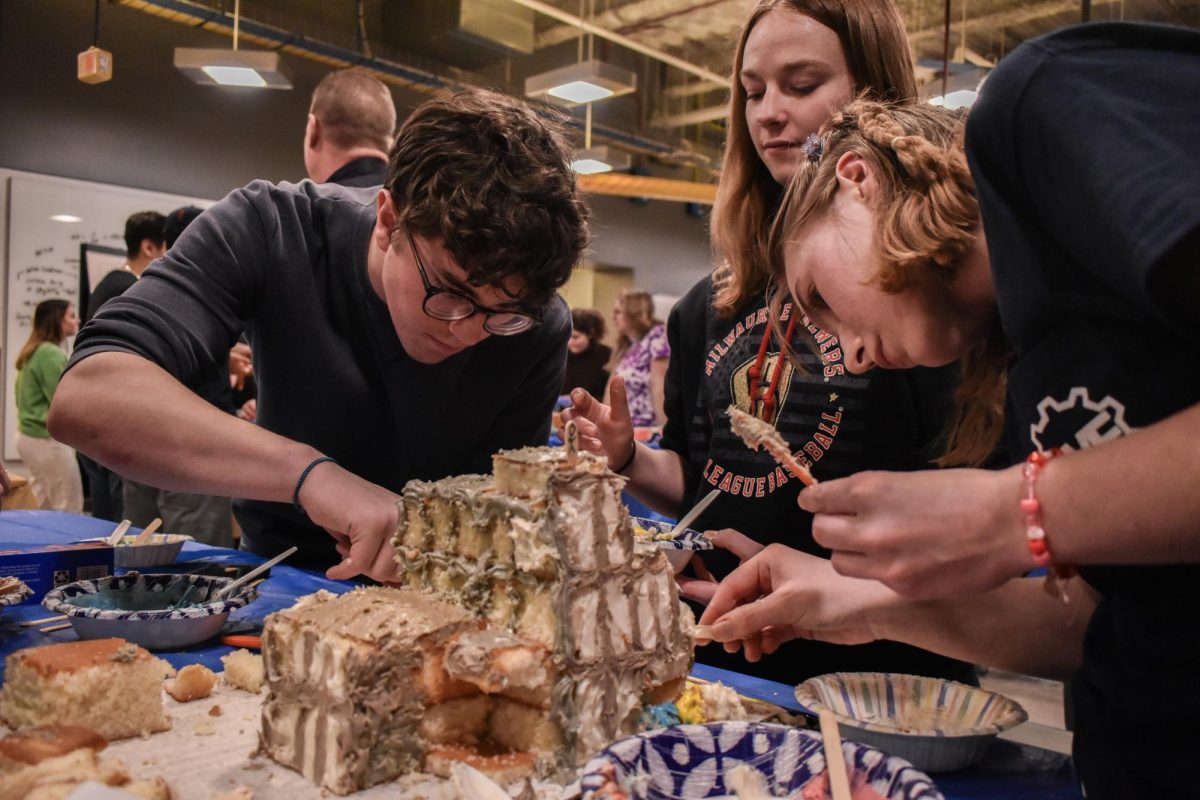After qualifying for another year at the international RoboCup tournament, Marquette’s Humanoid Engineering and Intelligent Robotics Lab returned from the event in Hefei, China with a new outlook and plenty of stories to tell.
The HEIR Lab’s team of five competed in the TeenSize humanoid league in July, using robots to play bot-to-bot soccer with students from around the world. The team finished sixth out of seven teams in a tie with Germany’s NimbRo team.
Marquette was the only U.S. team in its league, according to a university news release. The students competed against teams from Germany, Canada, Iran, India and Taiwan.
Humanoid robots are constructed to resemble humans and carry out human-like activities. Some of their features are the ability to walk on two limbs and respond to voice commands.
The Marquette team included College of Engineering students Matthew Morris, graduate student; Ryan Walsh, junior, and Adrianna Williams, sophomore. Rounding out the group was the team leader, Engineering Professor Andrew Williams, and graduate student Sally Lin, the translator.
The team was in China for 10 days, splitting the time between setup and competition. It spent much of its time watching tournaments in other leagues as well.
Not only did the teams compete against each other at RoboCup, they got the chance to show off their bots and talk with each other. The HEIR Lab squad met many new students from all around the world.
“It wasn’t the environment I expected,” Morris said. “It was much more friendly. Everyone was very open and came over and tried to help us or get help from other teams.”
The tournament had different leagues and activities besides humanoid soccer games, including programming rescue bots to respond in simulations.
Walsh said the RoboCup gave him “a perspective about just how deep the field is and just how much there is to do.”
Overall, the competition helped the HEIR Lab team see work in a new light. It hopes to compete next year as well, and have thought about what kind of improvements it can make to its bots. It plans to update voice commands and improve bot gestures, walking and balance.
“The goal of RoboCup is to ultimately make a robot that can compete against a human soccer player,” Morris said.
Competition gets tougher every year as RoboCup looks forward to a day when robots will be on the same playing field as professional human soccer players.

